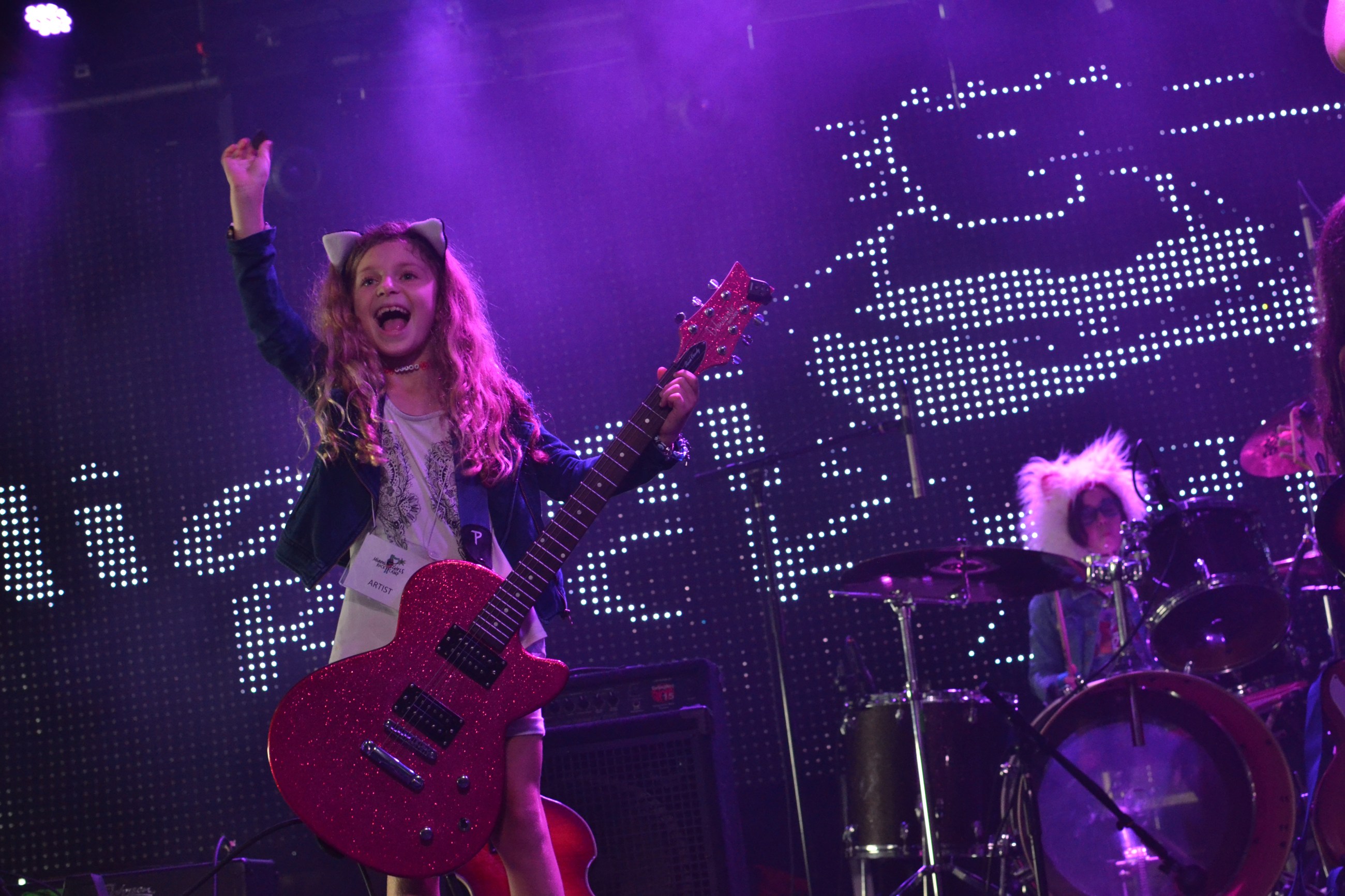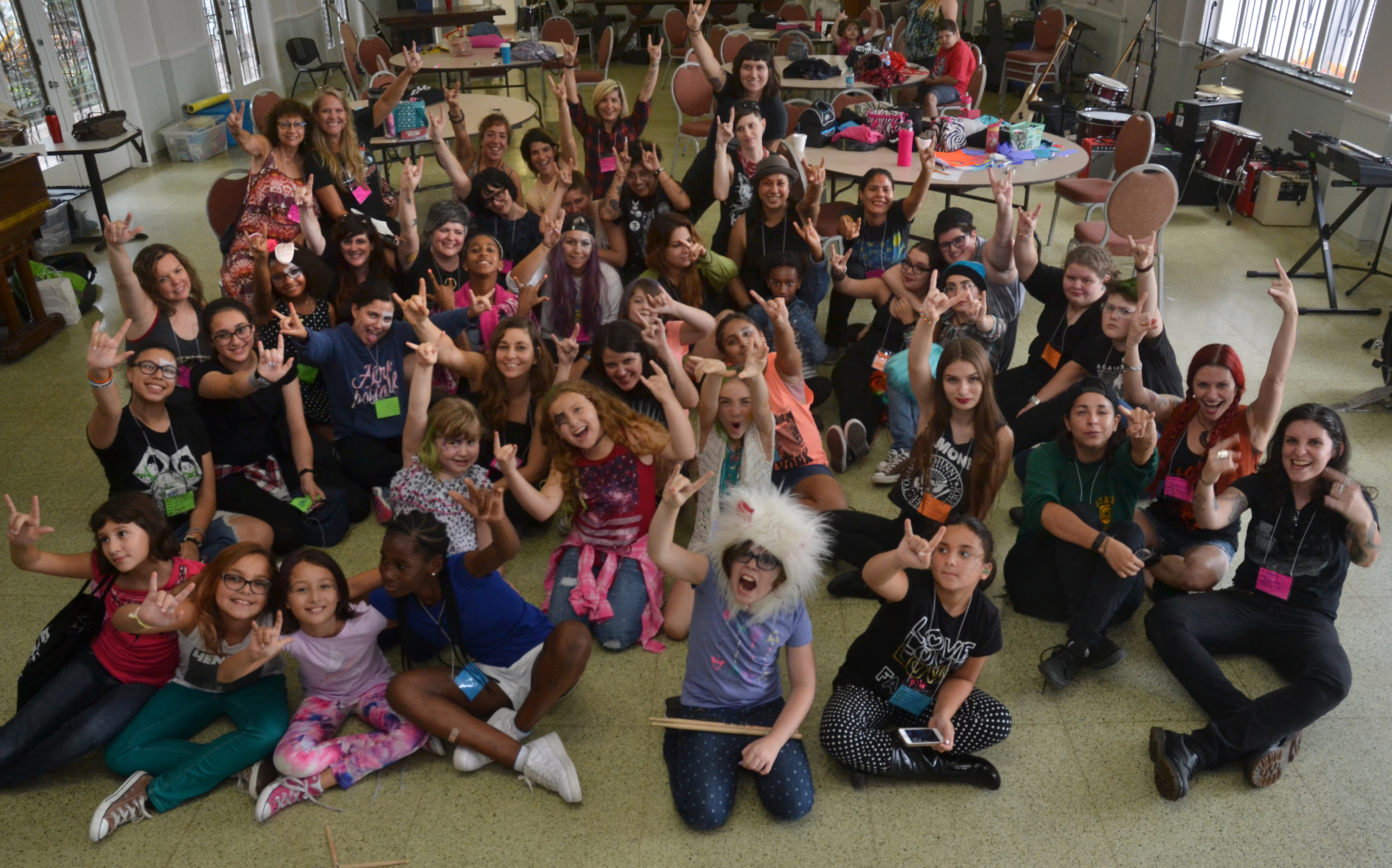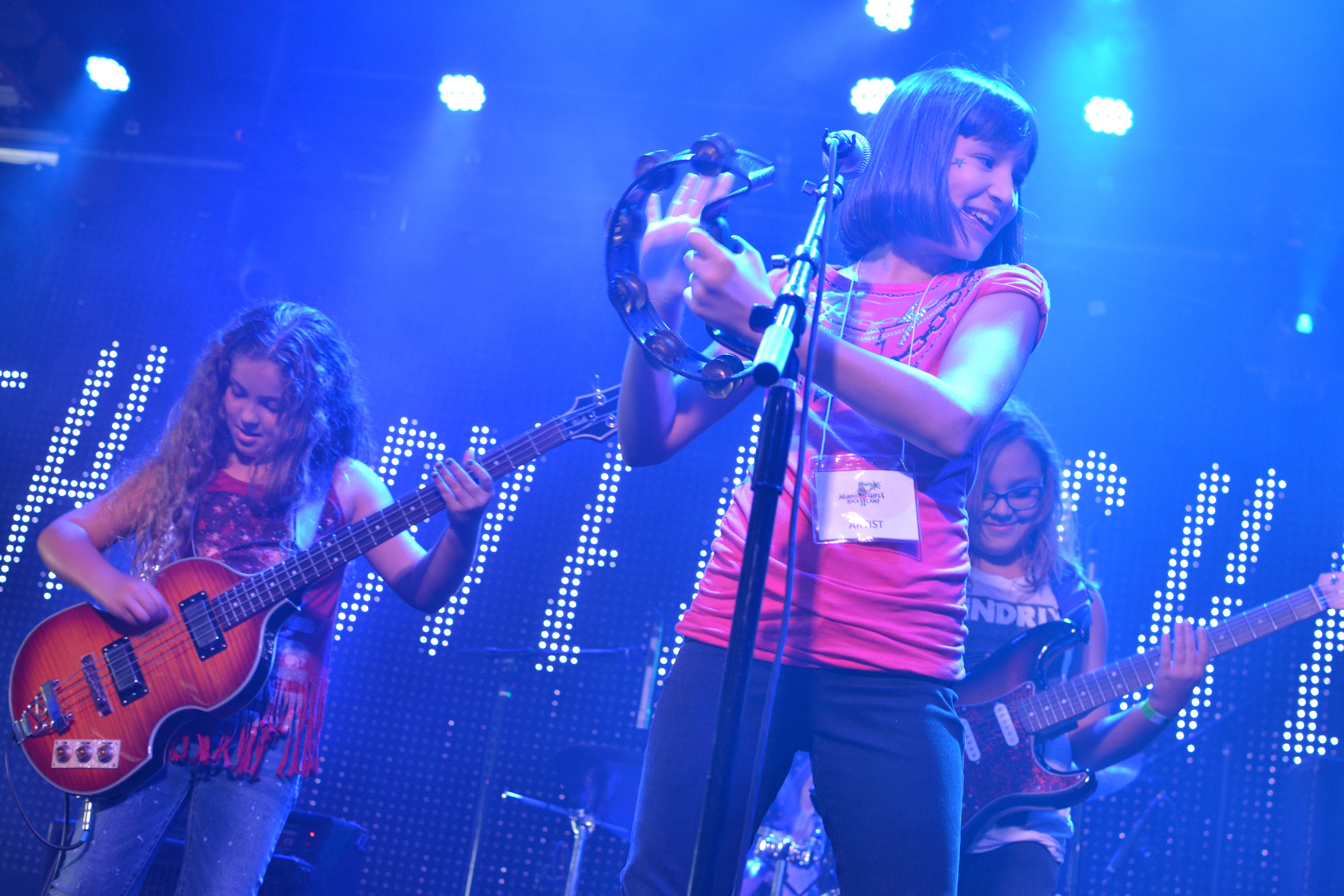
Miami Girls Rock Camp: An arts-based approach to engendering self-esteem
Gender bias in the music industry is well-documented, but changing that bias isn’t going to be easy. Fair contracts, objectification, equal pay for equal work and general physical safety are part of the music industry roulette machine that often shuts women up and shuts them down–which, in turn, impacts the kind of music that is created and by whom. This is especially true in genres like heavy metal, rock, hip hop and rap, which are overwhelming dominated by male artists.
Enter Miami Girls Rock Camp, a Knight Arts Challenge winner that promotes self-esteem and creative expression in young girls and women. Their premise: that, yes, girls and women are badass rockers, and their voices must be heard.
I had the opportunity to interview co-directors Steph Taylor, Emile Milgrim and Heather Burdick. Responding jointly to my questions, they shared how they want to empower women to access their creative potential through music, and possibly transform American music culture in the process.

All photos courtesy of Miami Girls Rock Camp.
What was the impetus and inspiration for Miami Girls Rock Camp? Girls Rock Camps exist all over the world. There are even some chapters elsewhere in Florida (Gainesville, Orlando and St. Petersburg). We were aware of the impact Girls Rock Camps have in so many places and in so many people’s lives, and felt like Miami really needed to be a part of this movement. Why is Miami Girls Rock Camp important for the community? We have such a diverse cultural landscape here, and we love the idea of taking girls from all communities and demographics and bringing them together with one common purpose. Miami Girls Rock Camp at its core is a really fun program that uses music as a platform to create a sense of self-worth and empowerment among the campers, especially during a time in their lives where 7 in 10 girls believe they are not good enough or do not measure up in some way. Our hope is that they will carry the impact of their experience at camp into their daily lives and bring these healthy behaviors back into their communities. Paul Lamere, director and developer of The Echo Nest, has studied music listening preferences and found that “about 30 percent of artists on a gender-specific chart don’t appear on the corresponding chart for the opposite gender.” This suggests that gender plays a big role in the kinds of music men and women chose to listen to. How can Miami Girls Rock Camp break this gender listening bias at the local level? Miami Girls Rock Camp is full of amazing music makers who seek to encourage, inspire and serve as positive, healthy role models for young girls in the Miami area. During the camp week, campers are exposed to a diverse lineup of local talent. Having kids at the young, impressionable age of 8-17 seeing a group of women creating their art without apologies has huge impact on how they see themselves. In what ways will Miami Girls Rock Camp promote self-esteem, community and creative expression in a culture that selects music based on gender? We promote self-esteem, community and creative expression by enabling the campers to experience the transformative power of music. Some of the girls get to camp on the first day completely introverted, having never even touched a musical instrument before. By the end of the week, they’ve not only learned how to play an instrument and write a song (amongst other empowering skills gained in various workshops), they’ve collaborated in a group and created something powerful and memorable–their own song! They’ve also created friendships and bonds with other campers and the positive female role models that volunteer to make the camp run. This experience changes kids’ lives, no question. All of this is done in a culture that some may argue “selects music based on gender,” and shows the girls that there actually doesn’t have to be any sort of gender bias in music. Women can be metal “shredders” and hip-hop MCs, as well as DJs and producers–roles often portrayed as being male in popular culture. By giving girls the opportunity to explore and take on these roles, girls rock camps are helping skew the perceived gender biases in the music industry and really level the playing field over time. How will the Knight Arts Challenge grant advance your mission? The Knight Arts Challenge grant advances our mission by helping us grow our concept and reach more girls with our message of empowerment. We will be able to purchase more gear, sponsor low-income campers to attend camp for free, pay for a space to host camp, purchase materials to use for camp, and sustain our infrastructure as we continue to grow our program.

What do you hope to accomplish long-term with the camp? Our long-term goals are to be able to find a permanent home for Miami Girls Rock Camp, to expand our programming to include workshops and camps throughout the year, and to develop a solid foundation so that Miami Girls Rock Camp can exist in perpetuity. How does the camp address the idea of diversity among the campers? I assume the application process is open, but is there outreach to communities that may not have access, resources or a willingness to send their girls to rock camp? We want Miami Girls Rock Camp to reflect the diversity of Miami, so have reached out through many avenues to be sure to be inclusive. Our outreach thus far has extended to schools, LGBT youth centers and churches. We’ve specifically asked for referrals of girls who might most need the exposure or support to allow them access to the empowerment that comes from the camp experience; and we make it a part of our messaging that no girl will be turned away for lack of funds. Scholarships and sliding scale fees are available to those who may not be able to afford camp. Happily, we’ve not run into the issue of parents who are against sending their girls to camp. If we did, though, we feel the camp documentation–the articles and videos that highlight the joy, strength, and beauty of the experience–would win them over pretty quickly. What’s the selection process for campers and for camp leaders? In camper applications, we ask them to select their first and second choice instruments to play during camp week. We also ask the campers to write an essay giving us a chance to get to know them a little bit. We select campers based on a number of factors. Since we put them into bands, we need to fill quotas for each instrument so that each band is complete. One of the most important factors in our selection process is diversity. We seek to take a diverse group of campers and make them all feel equally special and important in their roles in the band because they are.
The amazing group of volunteers in our first year consisted of music makers from many different scenes in Miami. Most of us either knew each other or knew of each other. We also had many non-musical volunteers ranging from teachers to nurses and social workers, and even had a mother/daughter duo. There was definitely a “thread” that ran through all of us.
What would you say to parents about the importance of girls making rock music? To parents, we would say that self-expression without holding yourself back is what’s important to these young girls. Music is the vehicle we use to help the girls express themselves. Rocking out on stage is all-encompassing, since campers use movement, lyrics, sound and collaboration to express how they feel. It is a complete sensory experience for these girls, especially when they are on stage, at a professional music venue, playing their song with the logo that they designed for their band behind them, and a huge crowd of people cheering them on.
Recent Content
-
Artsarticle ·
-
Artsarticle ·
-
Artsarticle ·
